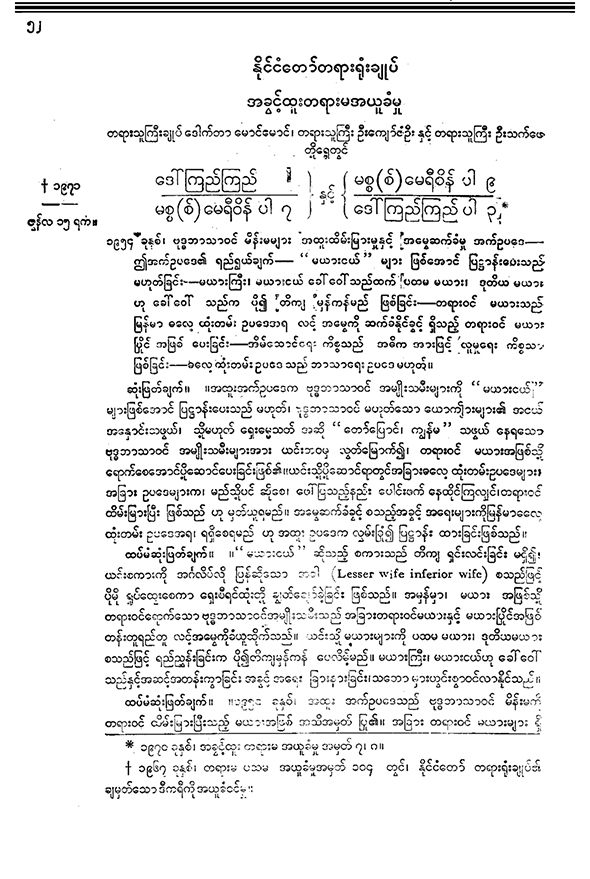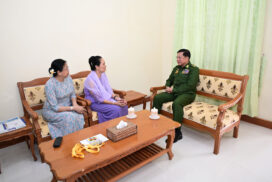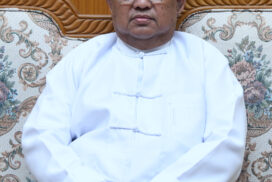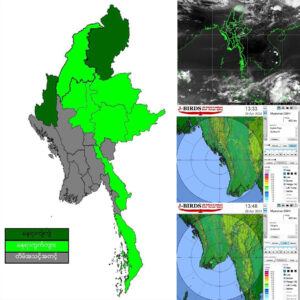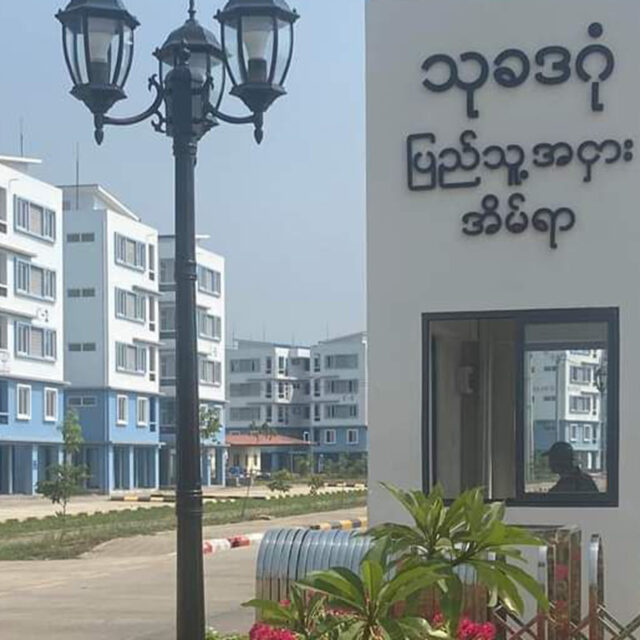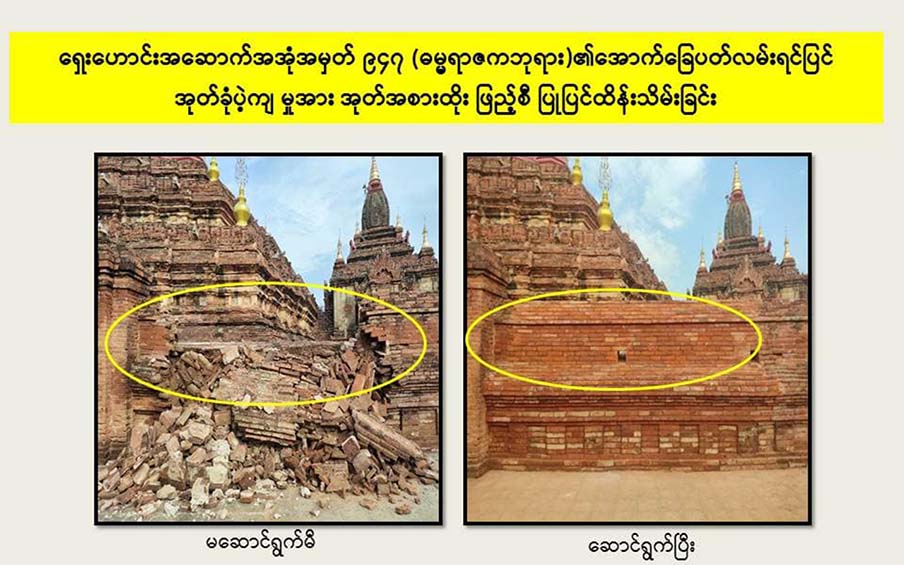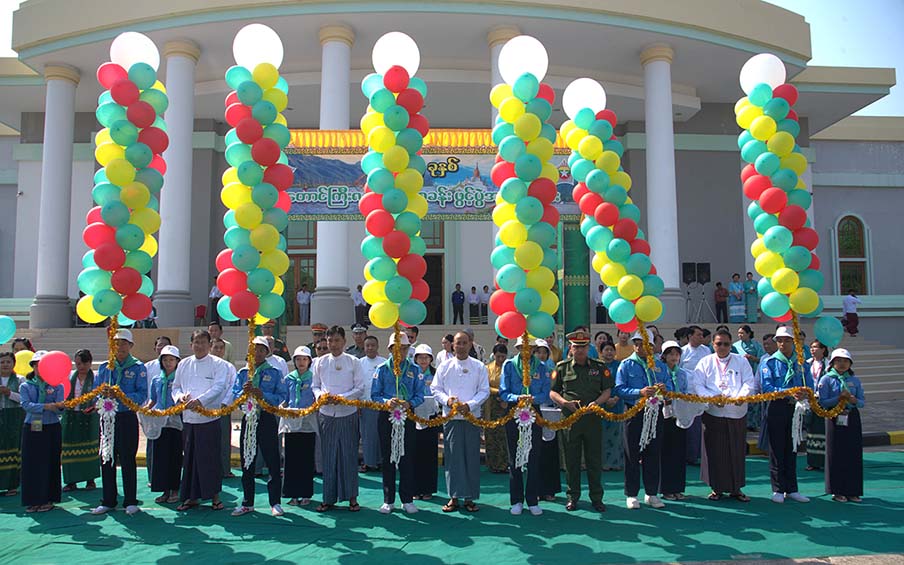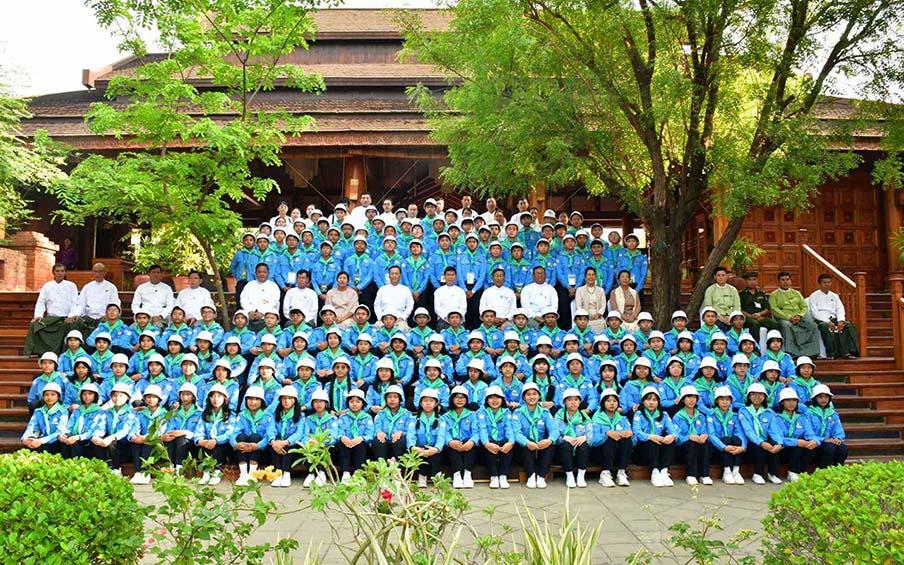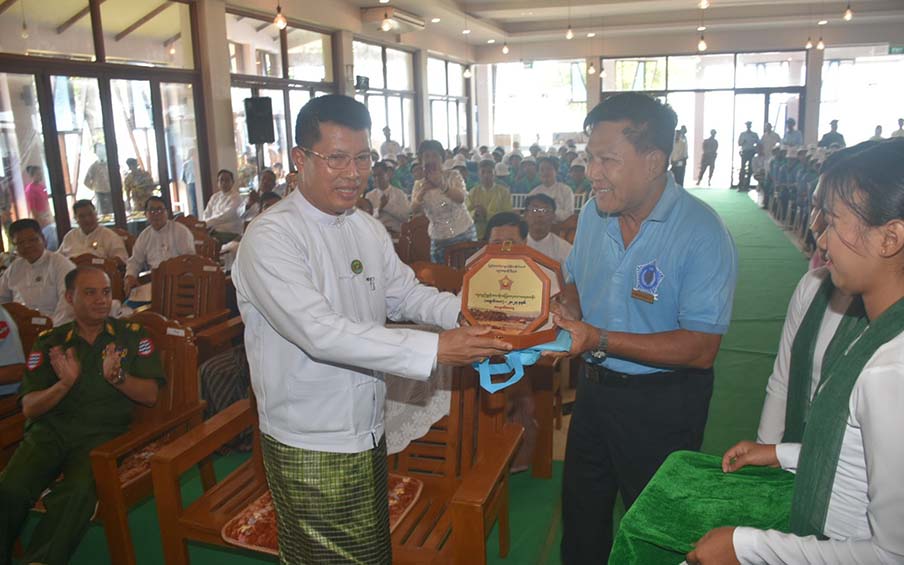By Dr Myint Zan
Part I
BRIEF FACTS, DECISION OF THE CASE AND COMMENTS CONCERNING TERMINOLOGIES
On 15 June 1971, the then Chief Court of the Union of Burma (as the terms were formally used at that time) delivered its judgment in the case of ဒေါ်ကြည်ကြည်နှင့် မစ္စ(စ်)မေရီဝိန် ၁၉၇၁ မြန်မာနိုင်ငံတရားစီရင်ထုံးများ (တရားရုံးချုပ်) ၅၂ Daw Kyi Kyi v Mrs Mary Wain, 1971 Burma Law Reports (BLR) Chief Court (CC) 52. The Chief Court bench consists of then the late Chief Justice (as he then was) Dr Maung Maung (31 January 1925-2 July 1994), the late Justice U Kyaw Zan Oo and Justice U Thet Pe. On 16 June 1971, 50 years to the day before this article appears, there was a front-page news item in The Working People’s Daily, predecessor of The Global New Light of Myanmar and in other Burmese and English newspapers as well. The judgment was written in Burmese by Dr Maung Maung. Yours truly has written about this case in an academic journal article Myint Zan, ‘Of Consummation, Matrimonial Promises Fault and Parallel Wives: The Role of Original Texts, Interpretation, Ideology and Policy in Pre and Post-1962 Burmese Case Law’ in 14 (1) (Spring 2000) of the Columbia Journal of Asian Law, pages 153, at 198-208. He will not rehash or summarise the points that he had made in the journal article. Only a brief encapsulation of the bare facts and decision of the case and additional commentary as ‘extended thoughts’, on the occasion of its 50th anniversary, is made here.
Brief Facts and Decision of the Case
A Burmese Christian U Htin Wain had married according to Christian Marriages Act, Mrs Mary Wain and apparently later cohabitated with Daw Kyi Kyi, a Burmese Buddhist woman. When U Htin Wain passed away in 1962, litigation between Mrs Mary Wain and Daw Kyi Kyi (and vice versa) took place regarding the estate of U Htin Wain. In effect, Mrs Mary Wain claimed that under the Christian Marriages Act polygamous marriages are not recognized, and Daw Kyi Kyi was not entitled to any part of the estate of U Htin Wain. Daw Kyi Kyi relying on, among others, the Burmese Buddhist Women Special Marriage and Succession Act 1954 ၁၉၅၄ ခုနှစ် ဗုဒ္ဓဘာသာဝင် မိန်းမများ အထူးထိမ်းမြားမှုနှင့် အမွေဆက်ခံမှု အက်ဥပဒေ (this Act was repealed on 26 August 2015 by the Myanmar Buddhist Women Special Marriage Act မြန်မာဗုဒ္ဓဘာသာဝင် မိန်းမများ အထူးထိမ်းမြားခြင်းဆိုင်ရာ ဥပဒေ claimed that she was legally married to U Htin Wain and was entitled to half of the estate. A lower court judge ruled that Mrs Mary Wain was the ‘bigger wife’ မယားကြီး Mayagyi and Daw Kyi Kyi was the ‘lesser wife’ မယားငယ် Mayange, and therefore Mrs Mary Wain was entitled to 3/5 of U Htin Wain’s estate and Daw Kyi Kyi to 2/5 of it. Both parties (Daw Kyi Kyi and Mrs Mary Wain) appealed the lower court’s decision, and the Chief Court reversed the lower court’s judgment and held that the estate was to be equally shared between Mrs Mary Wain and Daw Kyi Kyi.
Usage Concerning ‘Terminology’ of ‘Bigger Wife’, ‘Lesser Wife’
In his book, Law and Custom in Burma and the Burmese Family (The Hague, Martinus Nijhoff, 1963), Dr Maung Maung affirmed (among others in pages 57,78 and 85 of the book) that polygamous marriages were (as it then was and as had been for centuries) ‘recognized’ or ‘honoured’ in Burmese customary law. And Dr Maung Maung stated (at page 86):
When there are more wives than one, every wife –maya-wishes to describe herself as the maya gyi, and call the others maya nge, the “little or small” and in Burma, as elsewhere, women do not regard the entry of other women into their men’s lives, in ways big or small with any enthusiasm. The name-calling sometimes gets confused with the names. A second wife, even if taken after the death of the first, may sometimes be called the maya nge, just to identify her as the one who comes after in point of time, but that again is obviously an inexact and misleading usage.
Around eight years after that statement, Dr Maung Maung, as Chief Justice, had the chance to ‘rectify’ this misnomer or usage. In his ruling in Daw Kyi Kyi v Mrs Mary Wain decided 50 years ago, Chief Justice Dr Maung Maung stated (the translation is by this writer) the phrases maya gyi, maya nge is no longer appropriate. The preferred term is မယားပြိုင် maya pyine in order to reflect the equal status of the wives (at page 59 of the judgment). In his ruling, Dr Maung Maung mentioned the phrase ‘co-wife’ in English.
In 1978, seven years after the decision in the Daw Kyi Kyi case, at a hearing in a case in Mandalay (before a bench of the Central Court of Justice) in a case that was not related directly to Burmese customary law, a lawyer used the phrase maya gyi maya nge in his oral submission. None of the three judges from the Central Court of Justice deemed it fit to correct the lawyer’s use of the (arguably) outdated terms, but in response, the opposing lawyer, the late Advocate and notary public U Htun Way chided the other lawyer that the now politically and judicially correct term is maya pyine.
Fast forward ten years from June 1971 when the Daw Kyi Kyi (co-wife) case was decided to around August 1981. At the fourth Burma Socialist Programme Party Congress Party, Chairman U Ne Win (6 July 1910-5 December 2002) gave a speech. Chairman U Ne Win stated that the Burmese phrase လူတော်လူကောင်း ludaw lugaung (roughly ‘a brilliant person, a good person’) should be changed into လူကောင်းလူတော် lugaung ludaw (‘a good person, a brilliant person’). Chairman Ne Win claimed that ‘brilliant persons’ could, using their brilliance, cause trouble to the then sole ruling Party so that it is preferable to reverse the usage ludaw lugaung to lugaung ludaw. Toeing the Chairman’s line or stipulated/commanded usage, I have personally heard the phrase or revised expression lugaung ludaw been used by a speaker at a teacher homage ceremony and in news items and articles. One does not know for certain whether or not the usage has ‘reverted’ back to ludaw lugaung but it can perhaps be stated that the phrase mayapyine is established in the legal lexicon and perhaps to a lesser extent in general usage (albeit there could post –August 2015 be no maya pyine; see below).
‘Co-wife’ v ‘Parallel Wife/Wives’
When writing my article around 1999/2000, I somewhat ‘mischievously’ ‘deployed’ or used the phrases ‘parallel’ or ‘competing’ wives, making a literal translation of the word ပြိုင် pyine which, in certain contexts, can mean ‘parallel’ or ‘compete/competing’. As far as I know, before the publication of my article in the Columbia Journal of Asian Law, no one else has used the term ‘parallel (or) competing wives’ in academic publications. My article was published around 2001. Fast forward to October 2012. In a paper reading session of the Myanmar Academy of Arts and Sciences held at the Institute of Economics in Yangon, an academic had used the term ‘parallel wives’ in ‘their’ presentation or ‘reading’ in English. When I pointed out during the discussion session that I had first used the term, the paper presenter was unaware of my Columbia Journal of Asian Law article. As per the regulations or stipulations, all papers (except dealing with Myanmar language and literature) have to be written and ‘read’ (in most cases, presenters literally ‘read’ from prepared texts) in English. When I asked a question and made a brief comment in English (since the paper read by the presenter and the power points used were in English) during the discussion session, the presenter shook ‘their’ head, so this writer had to ‘revert’ to the Myanmar language to make his comments.
PART II EXTENSIONS
COMMENTS CONCERNING PERSONAL LAWS, ABOLITION OF POLYGAMY BY LEGISLATION AND SUGGESTION FOR RECOGNITION OF WILLS WRITTEN BY MYANMAR BUDDHISTS
Dr Maung Maung’s Obiter Dictum regarding the inappropriateness of ‘Personal law’ to decide family law matters
Near the end of the ruling, Chief Justice Dr Maung Maung stated obiter dictum (roughly ‘observation made in the course of the ruling’) that (in my own translation)
Since marriage matters are mainly social matters, it is no longer in accord with the times ခေတ်နှင့် မလျော်ပြီ to decide cases according to the personal law of the citizens based on the religious laws. The legislative authorities should seriously consider လေးနက်စွာ စဉ်းစား whether or not they should enact legislation that would have legal effect that would be applicable to all those who reside in the Union.
The Chief Justice mentioned the word ‘personal law’ in English (in brackets), which he translated as ကိုယ်ရေးဘာသာ ကိုယ်ရေးဥပဒေ (at page 61 of the ruling).
Around a month or a year after the 15 June 1971 judgement in the Daw Kyi Kyi case, the late Dr Maung Maung himself, either in July 1971 or July 1972, became a member of the then legislative body, the Revolutionary Council. Dr Maung Maung was also a member of the (in one sense) highest legislative body, the Council of State, from 4 March 1974 to July 1988. (Under the provisions of the 1974 Constitution, when the then Pyithu Hluttaw is not in session, the Council of State may issue ‘orders having the effect of laws’ which a subsequent session of the then Pyithu Hluttaw had to approve). Fifty long years after Dr Maung Maung’s suggestion in the Daw Kyi Kyi case in early June 2021, uniform legislation that applies to all those who reside in the country နိုင်ငံတွင်း အိုးအိမ်စိုက်ထူနေသူအများ in family matters have not been fully implemented.
Professor U Hla Aung’s proposal of 1965 to adopt a monogamous marriage system was implemented in 2015
In an article ‘Some Aspects of Burmese Buddhist Law and Malayan Muslim Law’ published in Volume 48 (1965) of the Journal of Burma Research Society, page 1 at 14 Professor and Head of the Department of Law at Rangoon Arts and Science University (as he then was) U Hla Aung (1923-2020) stated:
polygamy, which is the ugliest spot in Burmese family law, should be abolished altogether. It is a legacy of the feudalistic and colonial past and is no longer consonant with the present Burmese way to socialism.
Professor U Hla Aung (who also served as Attorney-General from mid-September 1971 to 3 March 1974) lived to see his 1965 proposal that recognition of polygamous marriages be ‘abolished altogether’ being put into legal effect when the then Pyidaungsu Hluttaw (‘Union Legislature’) enacted, (signed by then-President U Thein Sein) on 31 August 2015, တစ်လင် တစ်မယားစနစ်ကျင့်သုံးခြင်းဆိုင်ရာ ဥပဒေ Monogamous Marriage Law which, in effect, (and in part) states that persons who reside within Myanmar regardless of what their personal or religious law states can only be monogamous. Among Burmese Buddhists and as observed and commented by both local and foreign scholars, although polygamous marriages are quite rare and to a certain extent socially frowned upon, for centuries, until August 2015, polygamous marriages were recognized.
At the very least (and to repeat) until the monogamous law came into effect, polygamous marriages were not prohibited in Burmese customary law. The 2015 Monogamous Marriage Law is, if not significant, then quite notable in that centuries of custom among the Burmese /Myanmar Buddhists recognizing polygamous marriages were, to quote, Professor Hla Aung’s phrase ‘abolished altogether’ by legislation.
Non-recognition of personal law only regarding polygamous marriages but not in other family law matters
In the previous section, this writer stated that as per Chief Justice Dr Maung Maung’s suggestion in 1971, ‘uniform legislation’ regarding family matters (such as marriage, inheritance, divorce, adoption etc.) has not been implemented fully. In a certain sense, it can be stated that it was implemented in 2015 through the Monogamous Marriage Law only partly. But apart from this particular aspect of marriage, other aspects such as (say) inheritance, adoption, divorce etc., are not necessarily governed by uniform legislation shorn of or divorced from the ‘personal laws’.
It took 50 years (from 1965 to 2015) for Professor U Hla Aung’s proposal to ‘abolish altogether’ by legislation the polygamous system among Burmese Buddhists.
The allowance of the writing of Wills by Myanmar Buddhists: A Legislative Reform Proposal?
The polygamous marriage system, as stated above, was recognized for centuries under Burmese /Myanmar customary law until its abolition by legislation on 31 August 2015.
Although the existence, so to speak, of the polygamous marriage system was a clear fact, the issue as to whether Burmese or Burman (Myanmar/Bamar) Buddhists can write Wills သေတမ်းစာ (to dispose of their property after death) according to their own wishes came to the fore sometime in the mid to late 19th century. Burmese and colonial scholars researched on this issue and their finding or stipulation was that Burmese Buddhists, according to Burmese customary law, could not dispose of their estate by writing Wills. After a Myanmar Buddhist dies, succession or inheritance is to be determined by the hierarchy or ‘interconnections’, so to speak, among the relatives of the deceased, including but by no means limited to the principle or stipulation that အမွေသည် အောက်သို့ စုန်နိုင်လျှင် အထက်သို့မဆန်ခြင်း ‘if the deceased estate can “flow downwards” it cannot “flow upwards”’.
The statement by this writer that Chief Justice Dr Maung Maung’s proposal of 1971 to have ‘uniform legislation’ for all family matters has not been fully implemented can be discerned since (as of May 2021), Myanmar Buddhists cannot, as per Myanmar customary law, write Wills but Myanmar Christians can dispose of their estate through the writing of Wills. Myanmar Muslims subject to the provisions of the Sharia can dispose of part of their property through the writing of Wills. Perhaps Myanmar nationals who practise the Hindu religion can also write Wills, which could be recognized.
Hence at least in this aspect of Myanmar family law, in a certain sense, ‘personal law’ seems to be the main determinant as far as the allowance or non-allowance of the writing of Wills is concerned.
This writer is well aware that to change perhaps a century-plus stipulation that Myanmar Buddhists cannot write Wills is by no means an easy task and the issues and intricacies are quite ‘complicated’. This writer has seen throughout the decades advertisements in Myanmar newspapers of parents disinheriting their children, and he is not aware whether such announcements are upheld (throughout the decades) in Burmese /Myanmar courts. After all, disinheriting children can, in a certain sense, be considered tantamount to writing a ‘Will’ in that one bars one’s own children from one’s property after one’s death.
Is this writer naïve, unrealistic or whimsical when he mentions that perhaps just as legislation which ‘altogether abolished’ the customary law of polygamy among Myanmar Buddhists perhaps the allowance of distributing one’s estate by Myanmar Buddhists, at least parts of it, by the writing of Wills be recognized by legislation?
The essential part of Chief Justice Dr Maung Maung’s ruling in the Daw Kyi Kyi case has been superseded by, among others, the Monogamous Marriage Law. His suggestion that in issues regarding family laws, all those residing in the country should be governed by uniform civil legislation has, after 50 years, not being fully implemented.
Dr Myint Zan, a retired Professor of Law, has established the Myint Zan LLM (Master of Laws) prize, in perpetuity, at one of his alma maters The University of Michigan Law School for ‘exemplary [LLM] graduates with interdisciplinary interests and awareness of how the law should play a role in uplifting disadvantaged members of the society’. Four LLM graduates from New Zealand, Ghana, Indonesia and Austria have been awarded the Myint Zan LLM prize at their graduations from 2018 to 2021.
He had also established ‘Myint Zan Prize in Law Studies’ in perpetuity for Bachelor of Laws (LLB) students at another of his alma maters, The Australian National University (ANU) and in 2020, the inaugural ‘Myint Zan Prize in Law Studies’ was awarded to a student for his paper in the course ‘Law, Literature and Human Rights’. With the funds he had gifted to the ANU, two seminars have been held in December 2018 and August 2019 at the ANU Law Faculty attended mainly by early career researchers, and two early career researchers are scheduled to visit the Law Faculty at ANU in late 2021.

